One of the greatest things that ever happened to me
How depression, injury, and introspection shaped the career of D3 legend Garrett Clasen
Honestly, I hate the 200 I.M.
D3SO: Garrett, are you the greatest swimmer in the history of the University of Chicago swim program?
At the end of last season, we had two extensive conversations with Garrett Clasen, who was about to graduate from the University of Chicago. He’s a deliberate and thoughtful guy, simultaneously hard on himself and honest about his failings, but also sincere and aware of what he has accomplished. So we will admit to some mischievous curiosity about how he was going to answer that question about his place in Maroon history.
GC: I think in terms of the number of titles and All American awards, the amount of school records broken… I think objectively the answer to that question is… yes.
There was no way he was going to leave it at that.
GC: It’s not like I am saying I’m so much better than everyone else. It's more like it is a role someone’s got to play. Especially at Nationals, It was always about… I guess because the 200 I.M. is on day one of NCAAs. So it is like, all right, I have to go out and get the first title for the team, get the ball rolling. And that was the role that I loved to be in, and embraced.
He paused.
GC: Even though, honestly, I hate the 200 I.M.1
Garrett, the swimmer
Raised in the Chicagoland suburb of Aurora, Garrett Clasen finished his junior year of high school ranked in the top 10 of USA Swimming’s Illinois region.2
That success earned him a scholarship to swim at the University of Missouri. After a break, he landed in one of Division III’s most successful programs – the University of Chicago Maroons.
Garrett Clasen swam three seasons with UChicago.
He holds more all-time individual team records than any other swimmer in Chicago’s history.3
He also has top-three times in six different individual events, and again that is more than any other swimmer in team history.
He is second only to Sebastian Vernhes in the number of appearances on the list of Chicago’s all-time relay records.
Here’s Garrett Clasen’s standing in Division III last season.
And here is Garrett Clasen’s history at Nationals.
5 medals (2 gold, 2 silver, 1 bronze)
Earned All-American honors 17 times.
Two gold medals? They are from the 200 I.M. Yes, Mr. Clasen is a two time national champion in an event he hates and never wants to swim again.
It was never easy.
Garrett Clasen, on the 200 IMs
Reflecting on his signature event and how the meaning of that race changed from season to season.
In 2022, Garrett Clasen didn’t swim the 200 I.M. until late in the season.
GC: I'd actually torn my labrum in my shoulder a couple of weeks into my sophomore year at Chicago and had to kick for about three weeks going into our midseason meet.
In 2023, a series of upper respiratory infections left him struggling for months.
GC: In the fall, I got a nasty virus, and then I got the flu over Thanksgiving. So it was rough. I missed around two weeks of training because I was so sick, with a high fever. Then I developed an upper respiratory infection after that, which really plagued me until about two weeks before NCAAs.
In 2024, Garrett Clasen knew he would be going up against Derek Maas, who had posted a 1:42 in the 200 I.M. (and would do so again, breaking the Division III record). This required a different approach.
GC: Since I was a captain this year, part of my role was to be there for the team all four days, staying present and supportive. I didn’t want to check out if the 200 I.M. didn’t go my way. From the first day of the season, I shifted my focus to having a good meet, not just a good 200 I.M.

Garrett Clasen was so successful in college swimming, and appeared so comfortable in his role as a leader among athletes, that it’s hard to believe that, not long ago, this part of his life was falling apart.
Garrett the Swimmer
I just wanted nothing to do with it
Going into his Senior year of high school, Garrett Clasen started to experience something he identified as ‘burnout.’ This was a problem for several reasons:
First, his burnout was not mild.
GC: Every single week I hated the sport more and more… I just wanted nothing to do with it.
Second, the demands on him were about to intensify. He was, after all, a scholarship recruit at a top Division I program.
Third, he was bewildered by how he felt. The hatred for swimming was something he had never anticipated. And it undermined his fundamental understanding of himself.
GC: My identity, pretty much from the time I was seven years old, was like… I was Garrett the Swimmer.
Garrett the Swimmer… who now hated swimming.
Finally, it wasn’t just burnout.
D3SO: The depth of the burnout you describe in your senior year of high school… were you depressed?
GC: Oh, for sure. Yeah. 100%.
Garrett Clasen said he didn’t fully understand what was happening to him until much later, when he spoke to a sports psychologist at Mizzou. That meant that he spent almost a full year (understandably) confused, full of dread, and isolated from coaches and teammates as he suffered through an undiagnosed, untreated, and worsening mental health crisis.4
It was during this worsening depression that Garrett Clasen prepared to go off to college. He hoped that a change in environment would ‘magically fix the problem and I would fall in love with the sport again.’
That didn’t happen.
GC: I was pretty miserable there from the start.
Not myself at all
Entering a welcoming community of other athletes may be one reason why student-athletes tend to do well in their first years of college. They have a ready-made community of people who (mostly) want to get along and (mostly) want them to succeed. But people experiencing episodic depression are notoriously unsociable. Depression conjures exhausting quantities of self-doubt and self-consciousness.
GC: I definitely felt alienated from the team because I was, I guess, the freshman who came in with all the baggage. I guess my intention was for the swim team to be my social circle pretty early on, and I didn't really feel that… I was just fully depressed at that point. Just, like, not myself at all.
It didn't really end all that well
As early as July before his freshman year, Garrett Clasen was meeting with his Mizzou coaches to discuss his deteriorating mental health.
GC: I really laid it out there, saying I was just really struggling mentally. It was actually their decision for me to kind of take a step back and just reset.
His coaches hoped that taking a short break at the end of the summer would help him rest, regroup, and return ready in September.
GC: But I needed to step away. I was only on the team through the summer. I quit at the end of September. I never did a meet for them… So, yeah, it didn’t really end all that well.
Garrett Clasen's story has some sadly predictable elements we see in similar situations: A promising student-athlete with undiagnosed or untreated mental health issues has their athletic or academic career impeded or derailed by something they never anticipated. Mr. Clasen had no team to welcome him, he was far from home, and he was afflicted with the gloomiest of maladies. You'd expect Garrett Clasen to pack up and go home to suburban Chicago.
But that's not exactly what happened.
Kind of a huge shock
Garrett Clasen made himself go to class.
GC: I was definitely checked out mentally… I probably wasn’t learning much.
Yet, he got excellent grades. He joined a business-oriented fraternity, and by his sophomore year, he was on their executive board.
If you think these accomplishments are unusual for someone dealing with serious depression, hold on, it gets weirder.
Garrett Clasen went home the summer between his freshman and sophomore year and, mostly to maintain contact with old friends on his club team, hopped back in the pool. In his mind, he was done with serious swimming. This was just for fun.
GC: I was swimming, probably four days a week and feeling pretty good. I didn't do anything over 100 [meters]. And I ended up having, like, a lot of fun and was able to qualify for trials, which was kind of a huge shock.
Did you catch that? After everything he had been through, Garrett Clasen went home for the summer, trained part-time with friends, and recorded an Olympic Trials cut in 100 Breast.
Coming out of that summer, Mr. Clasen’s depression began to level off. He didn’t feel good, but he continued to function at a high level academically. And his experience that summer in the pool rekindled his interest in swimming.
My excuse to get out of there
When Garrett Clasen returned to Mizzou for his sophomore year, he made no attempt to rejoin the Mizzou swim team.
Which was probably for the best, as he was about to suffer a serious injury. Maybe it was in the weight room, though he does not recall a specific traumatic event. Later imaging showed that the disc between his L5 and S1 vertebrae had ruptured, bulging into surrounding nerves and spilling all its shock-absorbing fluid. His lower back became the source of extreme, unrelenting pain. He limped through the fall and winter at Mizzou.
Then in March, COVID shut down the university. Garrett Clasen, with a severely injured back and intermittent depression (as well as a 3.92 GPA, a seat on the executive board of his business fraternity, and an Olympic Trials cut) went home to suburban Chicago to figure out what to do with his life.5
When the whole world stopped, I was able to catch up
By May of 2020, Mr. Clasen’s physicians had exhausted other options, so he agreed to back surgery, along with the extensive recovery it entailed. In some ways, his timing couldn’t have been better. While Garrett Clasen is aware of COVID’s larger, terrible toll, he recognizes that the quarantine period directly benefitted him.
GC: It was actually a really weirdly good time for me. Because I felt like my path in life was just lagging so far behind of, I don't know, like the rest of the world, honestly. But then when the whole world stopped, it felt like I was able to catch back up in a way… I was able to really just focus on one thing, which was getting my back better.6
UChicago
It was great from the start
During the recovery period from back surgery, Garrett Clasen reached out to the University of Chicago’s swim program. For him, it felt like the only viable option.7 He wanted to stay in the area, attend a more academically rigorous school, and explore whether he could—under the right circumstances—be a successful college swimmer.
Chicago head coach Jason Weber saw in Garrett Clasen a student-athlete worthy of a supported application.8 And Garrett Clasen was on a mission to prove to himself that he could swim at this level.
GC: That was my driving force, especially at the beginning. And I also think it helped that I really connected with the team early on.
Garrett Clasen restarted school as a sophomore at the University of Chicago in the fall of 2021.
As for the swim team: He trusted his coaches. He liked his teammates and felt that they genuinely wanted him there. Even the practices had a familiar rhythm, similar to how he had trained on his club team. This familiarity helped him relax and stay in the moment, focusing on each day’s training and making the most of it. His concerns about whether he could swim at the college level quickly evaporated.
Mr. Clasen was surprised at how soon he felt comfortable and immediately sensed that he was in the right place.
GC: I definitely got really lucky with this team. It was great from the start. I feel like I was really able to grow here… And also just prove to myself that I could bounce back from something that really, really sucked and then turn it into one of the greatest things that ever happened to me. I feel like I can be really proud of that transition.
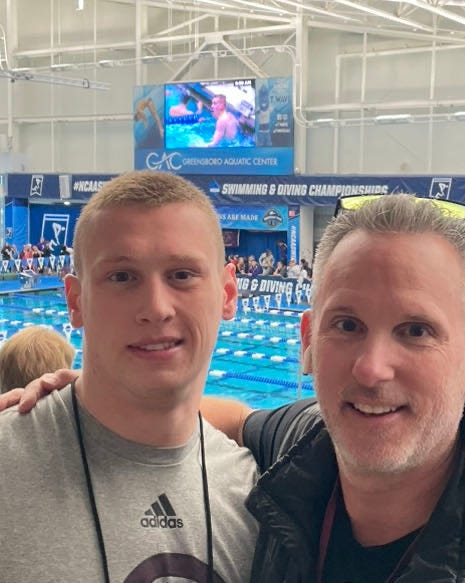
Really fell into my lap
Feeling more settled, Garrett Clasen had the bandwidth to explore other interests. Since his sophomore year, he has served as the University Athletic Association (UAA) representative on the NCAA national Student-Athlete Advisory Council (SAAC).
GC: It really fell into my lap. It was the middle of my first season with the team. My assistant coach at the time was pretty involved in student-athlete development stuff. She got word that this position was open and just told me to apply… I had no clue about it at the time, but I just applied and was able to be nominated for that position.
It is happening again. Garrett Clasen is (again) describing the most extraordinary and unexpected experiences with a tone that suggests there’s nothing unusual about them at all.
Consider this: Garrett Clasen had just emerged from the chaos and torment of his experience at Mizzou, the isolation of quarantine, and recovery from major surgery. Now, he was transitioning to one of the most selective and academically challenging institutions in the world, continuing therapy to develop the mental tools needed to manage his depression, and finding his place on an established college swim team.9 Yet, a couple months into his first season, his coaches had already determined that he was the right person to represent the entire UAA at the national level on serious matters concerning student-athletes.10
The loose ends
There are elements of this story that exist in tension with each other, so it’s worth making a few things explicit, and perhaps anticipating some reactions we think would be mistaken.
First, Garrett Clasen’s successes should not be taken to suggest that he wasn’t really suffering from depression. He was miserable. He felt ashamed about his inability to engage with the team that had recruited him, and he drifted further from a sport that had long defined his identity—and, as it turns out, was a sport he still loved. His suffering, and the damage it caused, was real.
Nor should anyone interpret this to mean that others suffering from depression should be unfavorably compared to Garrett Clasen, who was able to succeed in other ways despite his illness. Depression presents differently in different people at different times. Part of its mystery is that for some, it leaves certain functions intact.
The larger point is that depression shattered Garrett Clasen’s plans for his future and his sense of identity. Yet he leaned into what he could still do. He kept himself open to the possibility that what once gave him joy might one day do so again, and he didn’t stop searching for a new environment where his life could improve.
Garrett Clasen's battle with burnout and depression is so compelling that it was tempting to make it the sole focus of this profile. But the essence of his struggle is that, in the end, depression didn’t define him. His defining traits turned out to be his talent, relentless work ethic, the respect he earned from coaches and teammates, and his thoughtful demeanor that consistently channeled him into leadership roles.
So, let’s not forget how bleak the future looked to Garrett Clasen in September of his freshman year, how bewildered, embarrassed, and isolated he felt.
We know that right now, many college athletes are trapped in the same struggle, experiencing the same painful emotions and isolation. This is a widespread and persistent problem. And we believe that is reason enough to share Garrett Clasen’s story.
D3SO: When we write this up, is it ok with you if we discuss mental illness and how depression undermined you?
GC: Oh yes. Totally cool with me. That's a huge part of how I got to where I am today. I don't mind talking about it one bit. I know what it took to work through it. And I am willing to talk about it, because I think it could help someone else in a similar situation.
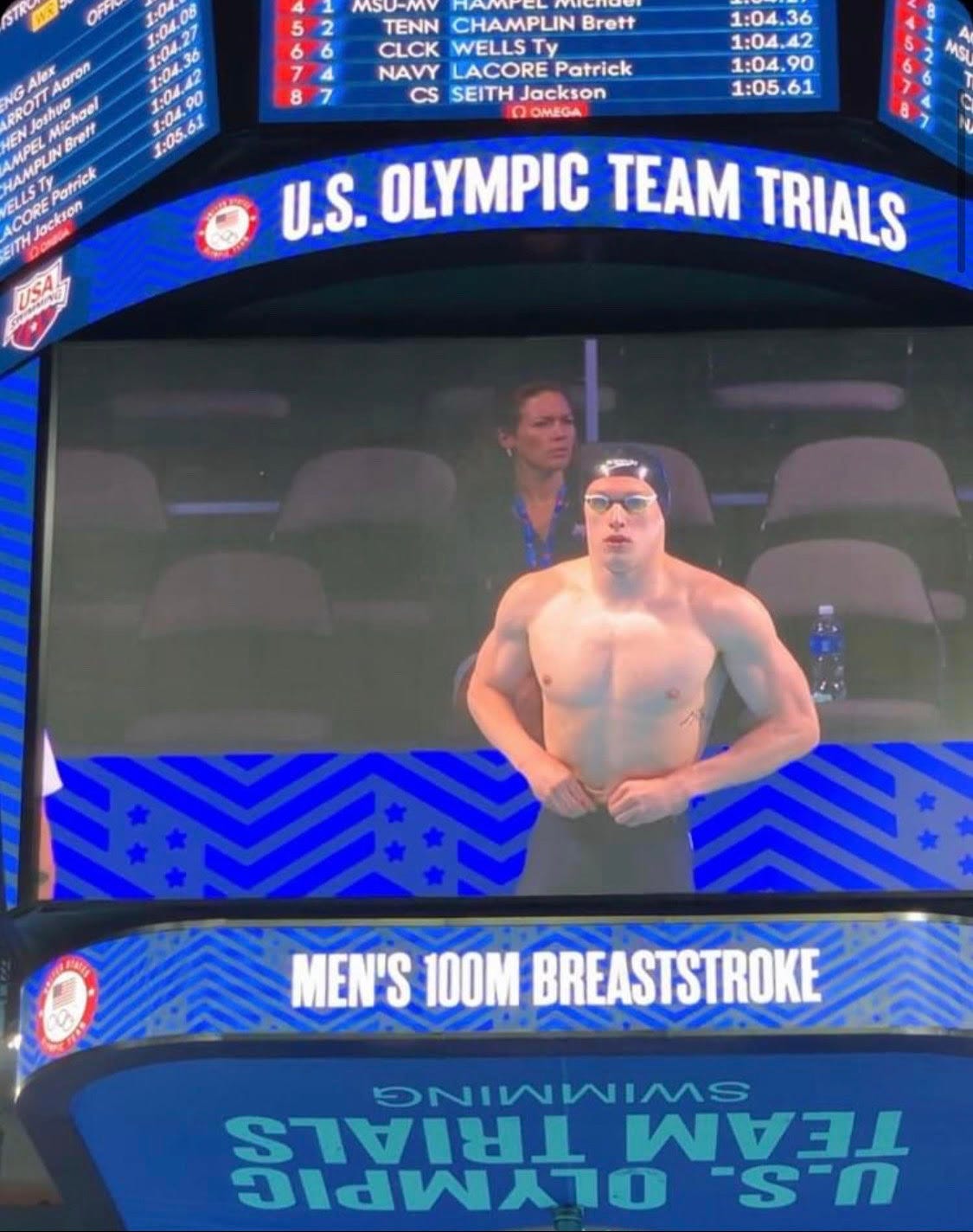
The 200-Yard (short-course) Individual Medley (200 I.M.) is the second event of the Division III Swimming and Diving National Championship ('Nationals').
As with all events at Nationals, athletes who have qualified for the event swim during the Trials segment, which begins at 10 a.m. These trials are often referred to by athletes and coaches as ‘prelims.’
On the first day of Nationals, the events are as follows:
500-yard freestyle (Men)
500-yard freestyle (Women)
200-yard individual medley (Men)
200-yard individual medley (Women)
50-yard freestyle (Men)
50-yard freestyle (Women)
Whether the men’s or women’s events go first alternates each year.
The top 16 finishers from the prelims return for the Finals session, which begins at 6 p.m. Athletes who placed 9th through 16th in the prelims compete in the first final, called the consolation final. Those who placed 1st through 8th compete in the second final, called the championship final.
The order of finish in the championship final determines the official ranking on the podium, even if a swim in the consolation final was faster than any swim in the championship final.
The top three finishers are commonly referred to as ‘medalists’ or as having ‘medaled.’ Third place earns the bronze medal, second place earns the silver, and first place earns the gold.
That is true for both Men’s and Women’s records. Garrett Clasen is the UChicago record holder in 100 Breast, 200 Breast, 100 I.M., and 200 I.M. His contemporaries Marcell Milo-Sidlo (1000 Free, 1650 Free, 400 I.M.) and Jesse Ssengonzi (100 Fly, 200 Fly) also hold multiple spots on the Maroon record board. Mr. Clasen and Mr. Ssengonzi are also members of three record setting relay teams, and only rising Senior Sebastian Vernhes, anchor-extraordinaire, is on more team-record setting relays.
As for the cause of the depression, Garrett Clasen does not see an obvious culprit, and doesn’t seem determined to shoehorn-in an explanation.
Maybe there was a feedback loop of his dream coming true - getting recruited by a top D1 school - which didn’t feel as great as he expected, which made him a bit disillusioned with swimming, which hurt his practices and his competition times, which generated more bad feelings about swimming, thus restarting the loop.
Or maybe that wasn’t it at all. Maybe the negative affect was driven by a depressive trend that just…was. Like, a biological state of mysterious origin operating independent of the objectively positive developments in Garrett Clasen’s life.
GC: …Then COVID happened. I was able to go back home and that was really the catalyst for like transferring… that was also the same time that my back was really, really bad. So part of the motivation for going home too was getting a second opinion on surgery… COVID was my excuse to get out of there without the repercussions of missing the second half of the semester at school.
One of the unfortunate issues with back surgery is that even successful back surgery is more process than endpoint.
GC: It's unfortunately something that like never fully gets better. Even after surgery, I still deal with flare-ups and I do physical therapy for it every single day. Still, it's so much better than it was before. But it's still a thing. Like you have to be conscious of not putting yourself in a situation where you have to sit still for too long.
GC: I wanted to be close to home and for some reason the University of Chicago was… the only option for me at that point.
That feels like a no-brainer now, but at the time would have required a little bit of vision. Garrett Clasen had excellent grades and significant extracurriculars, but a coach would have been forgiven for harboring some reservations about Garrett Clasen’s commitment to swimming.
We don’t want to exaggerate here. Garrett Clasen, the summer before arriving at the University of Chicago, did compete in the USA Olympic Team Trials in Omaha (June, 2021). So his UChicago coaches were probably fairly confident that he would be able to keep up with the competition.
This is how Garrett Clasen described his role (from his LinkedIn page): I am the sole representative of the UAA conference, and I actively communicate with high-ranking officials within the UAA and the NCAA to ensure that the student athlete voice, as well as their voices, are heard through my seat on the committee. I collaborate with fellow SAAC members and conferences to draft and vote on legislation meant to improve the student-athlete experience within the NCAA.
At least when it comes to swimming, the UAA is the largest and most competitive conference in Division III. It includes Chicago, Emory, NYU, WashU, Carnegie Mellon, Case Western, Brandeis, and Rochester. It is a massive conference, spanning nearly half the continental United States, and including several of the largest programs in the Division.

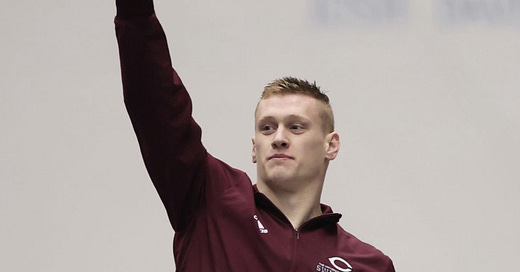


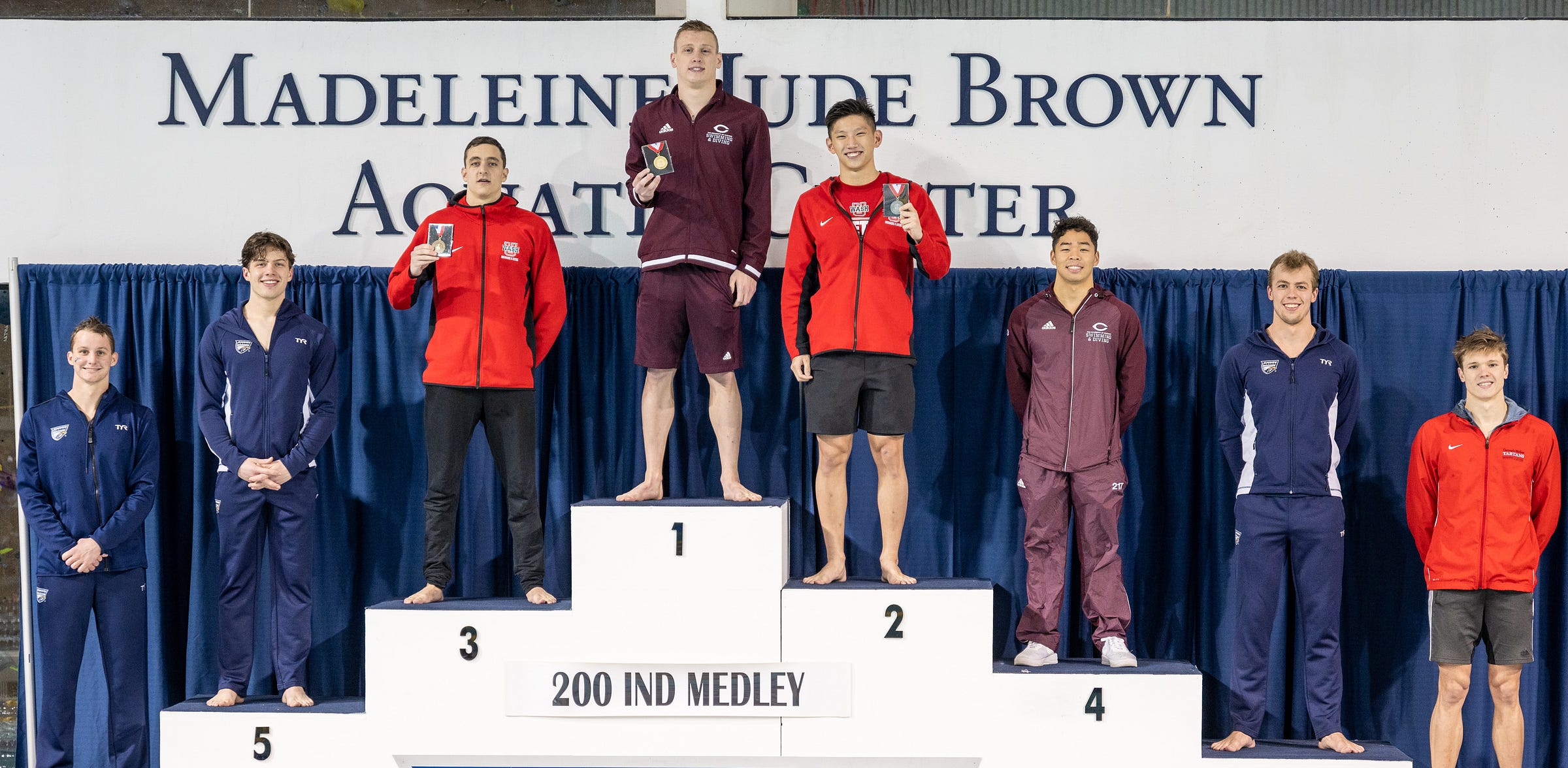

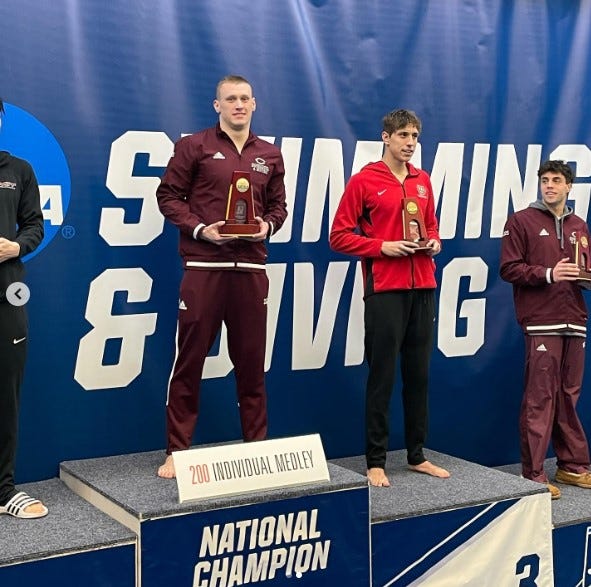

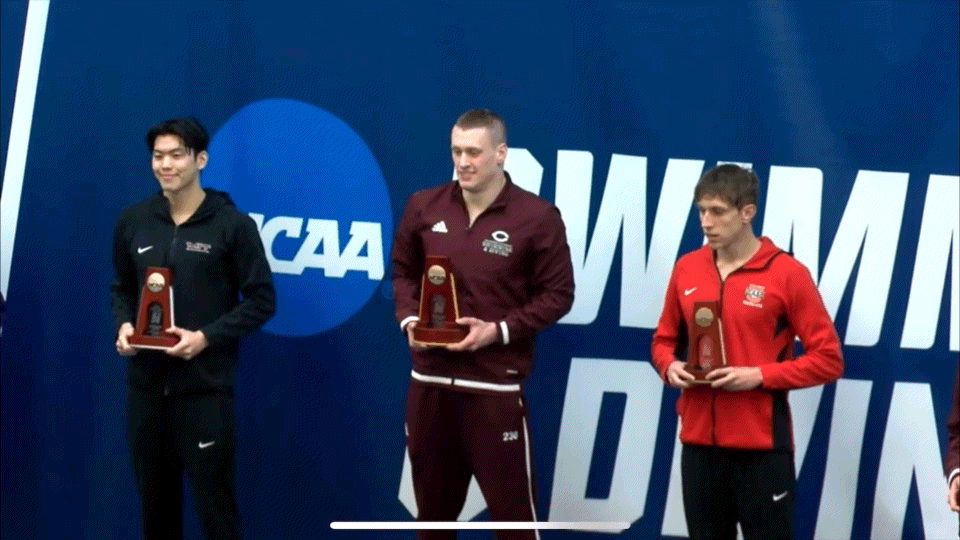
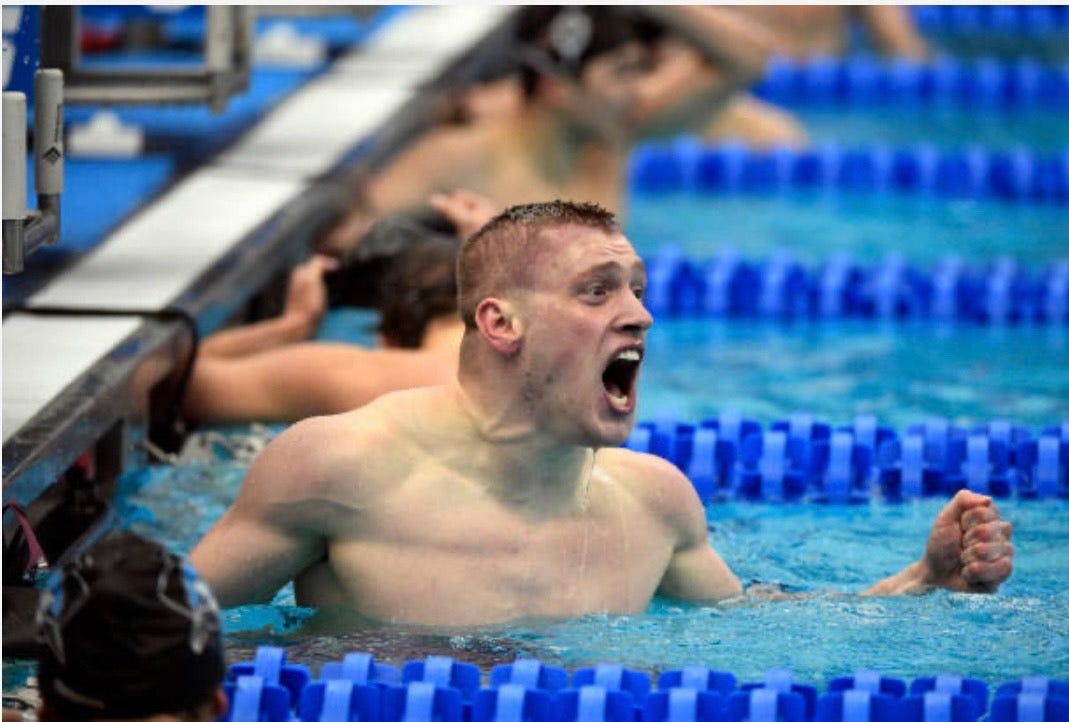

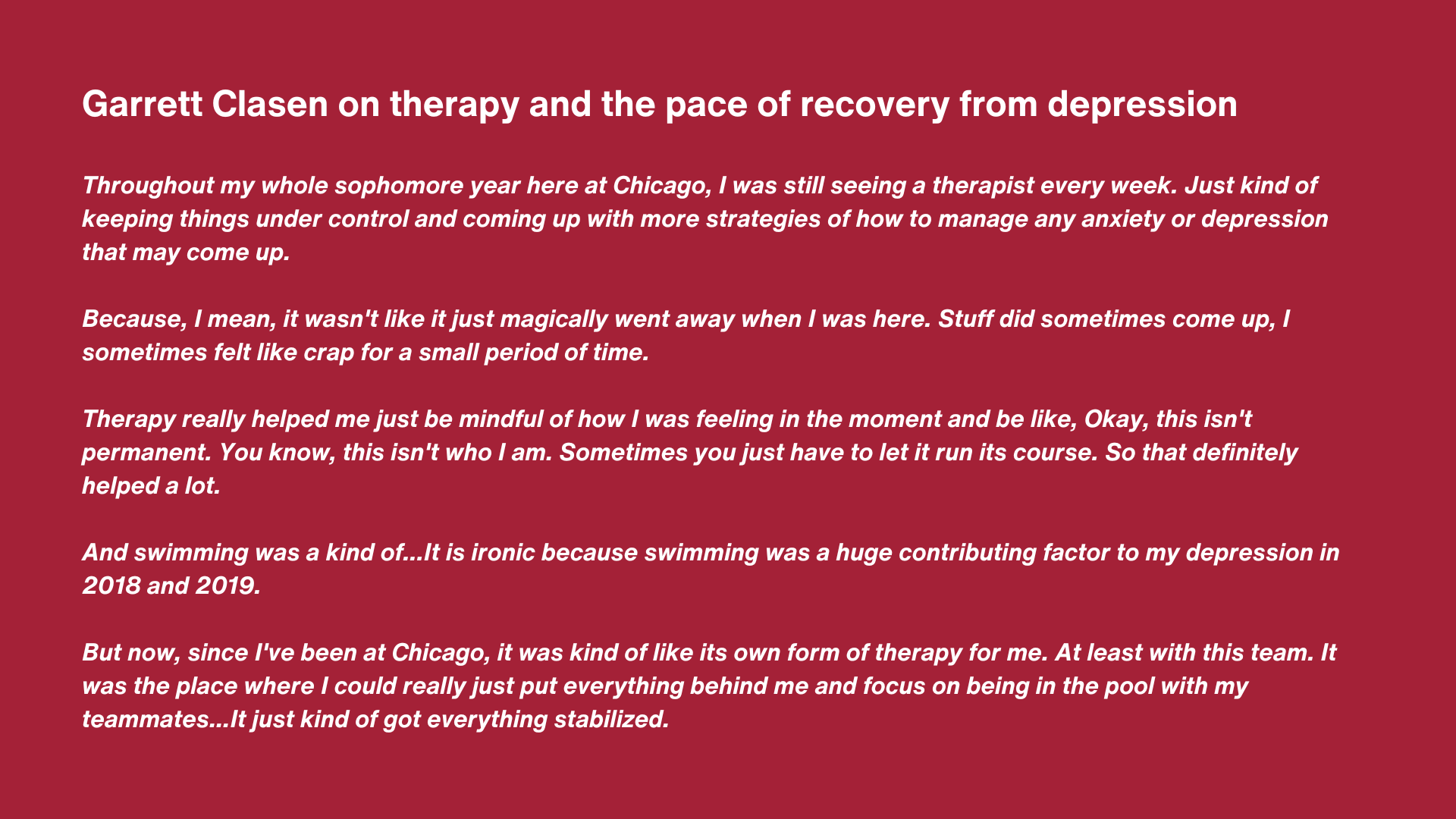


Excellent article! Thank you for sharing your story Garrett.